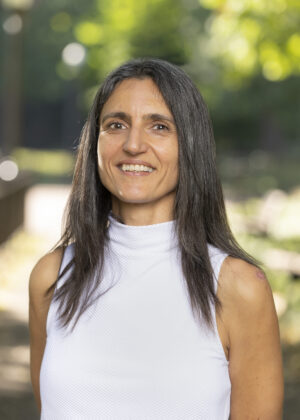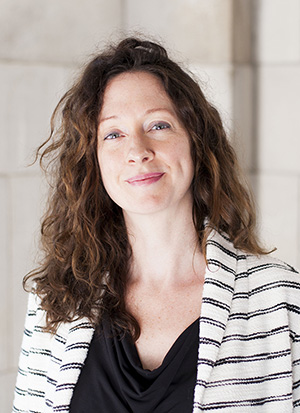Undergraduate students co-lead study on carbon offset financing for energy-efficiency upgrades for low-income households
Climate change affects us all; however, disadvantaged communities are often the most vulnerable and negatively impacted.

Low-income households have limited material and financial resources to build resilience to heat and other weather events. Low-income households in the U.S. spend 6 to 10 percent of their limited income on energy costs, compared with 3 percent spent by middle- and high-income households.
In a new innovative study conducted by the Vanderbilt Climate, Health, and Energy Equity Lab (CHEEL), four undergraduate students and three faculty researchers identified a new approach to reduce the health inequalities of energy cost burdens and greenhouse gas emissions. Maya Maciel-Seidman, a senior majoring in Earth and environmental sciences and minoring in data science and climate studies, is the first author on the paper.
“What really drew me to this project was not only the applicability of energy efficiency upgrades, but the benefits for the residents of low-income housing,” Maciel-Seidman said. “We very intentionally developed this project with social, health, and economic disparities in mind. This sets our proposed socially responsible carbon offsets apart from traditional carbon offsets.”
Some U.S. companies have pledged to voluntarily reduce their impact on climate change by paying other businesses and nonprofits to reduce carbon emissions on their behalf. The CHEEL research illustrated the potential for funding energy efficiency upgrades to low-income housing by selling (on the voluntary carbon market) the carbon offsets generated through energy upgrades.

The transinstitutional CHEEL Lab was created by Associate Professor of the Practice of Climate Studies Zdravka Tzankova, Professor of Nursing Carol Ziegler, and Assistant Professor of Nursing James Muchira. The CHEEL Lab’s mission is to mobilize innovative combinations of research, practice, and teaching to advance just approaches to climate mitigation and renewable transitions.
“We saw a clear opportunity to fill some of the gaps left by public policies and programs to fund home energy efficiency for low-income households—and do so by mobilizing the best versions of existing market-based tools,” said Tzankova.
The researchers explored four key types of energy efficiency upgrades in low-income housing in Nashville: heating and cooling systems, windows, attic insulation, and refrigerators. To conduct the research, they partnered with Westwood Baptist Church, which owns several rental properties that provide housing to low-income households at below-market prices.
The CHEEL Lab team calculated that making the four upgrades in a two-bedroom Nashville rental unit could reduce carbon emissions from home energy use by an estimated 592 tons over the 25-year life of the upgrades, which will subsequently reduce the resident’s energy costs.
“In terms of benefits, we hope that companies pursuing climate commitments will invest in this type of efficiency-generated carbon offset that improves living conditions, health, and health equity for communities right here in the U.S.,” Tzankova said. “And we hope that this type of offset will be particularly attractive to corporate offset buyers who are seeking to have a positive impact in their host communities, as well as seeking to meet climate commitments.”
Maciel-Seidman created the primary calculations used in the research. She worked alongside three other undergraduate students—Samuel Lu, Aaditi Lele, and Cindy Yan—to conduct literature reviews and collect datasets.

“The students ended up building their own team based on what they needed,” Ziegler said. “The project was very student-led and student-driven. The CHEEL Lab gave them the skills to work with community partners, to work on a team, to work on complex issues, and to be self-directed.”
Over the summer of 2023, Maciel-Seidman developed the paper’s core methodology for calculating efficiency-driven energy and carbon savings by using publicly available data sources and basic on-site measurements. In the fall of 2023, she built on her summer work, using it as the basis for an Immersion project, ultimately producing the basis for the peer-reviewed paper co-written with members of the CHEEL Lab team.
“This experience has been one of the most integral parts of my Vanderbilt career,” Maciel-Seidman said. “I became better at approaching problems from multiple angles and thinking creatively to overcome setbacks. I was able to learn from my peers and faculty who have extremely different academic areas of interest than I do. I had the rare and extremely valuable opportunity to publish a first-author paper as an undergraduate.”
These types of immersive experiences are unique to Vanderbilt, which offers students an opportunity to tailor their educational journey to match their passions and career aspirations. Students are learning in the classroom while also gaining real-world experience in the field, allowing them to explore deeply and create a tangible impact.
Reflecting on her CHEEL Lab research, Maciel-Seidman said she hopes it sparks conversations about approaches to climate mitigation that are beneficial to both the environment and marginalized communities, as well as inspires other interdisciplinary collaborations.
“Determining methods to mitigate climate change is really rewarding, but it’s even better when these solutions benefit the communities that are most vulnerable to the impacts of climate change,” Maciel-Seidman said. “I think it’s really important to remember that, at the end of the day, the reason why scientists and policymakers around the world are tackling climate change is to help people.”
Read the full paper published in Frontiers, and read more about the research in an article published in The Conversation.
Read the original article here.

